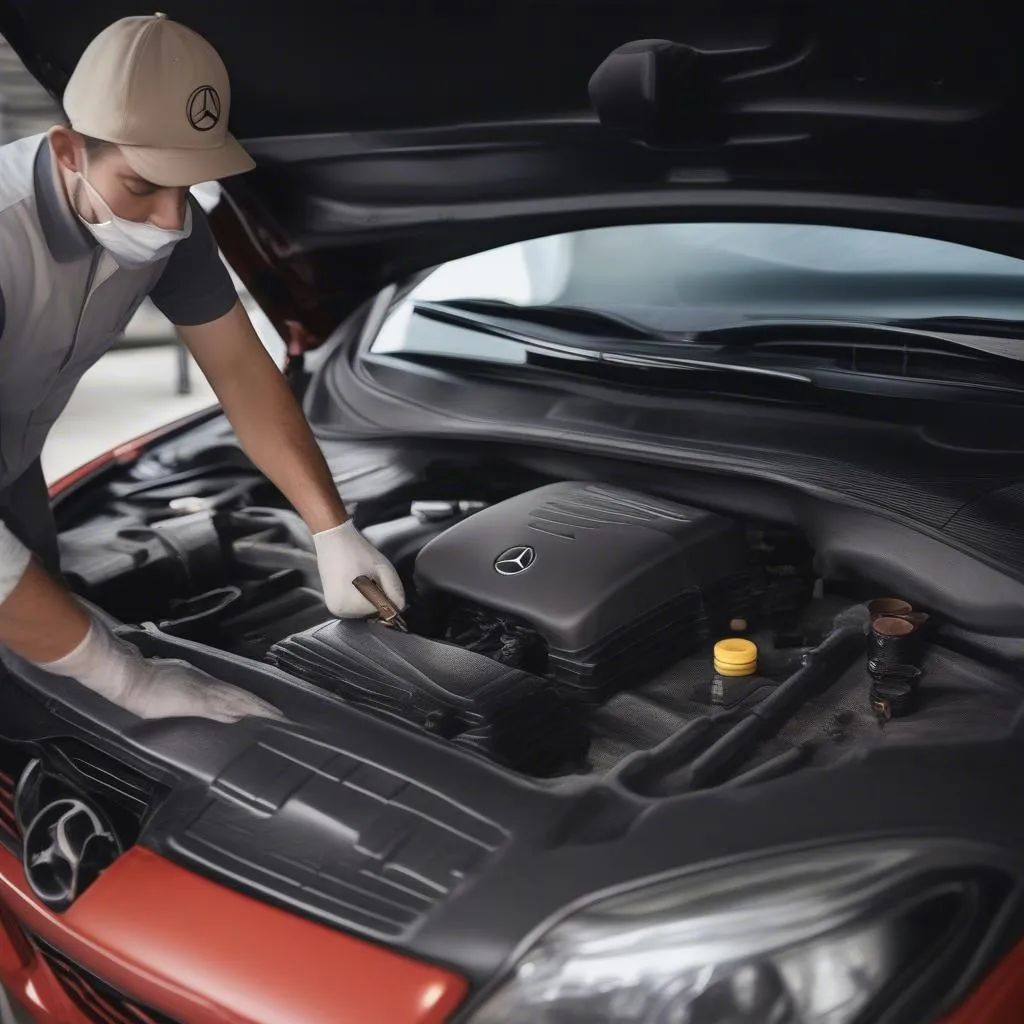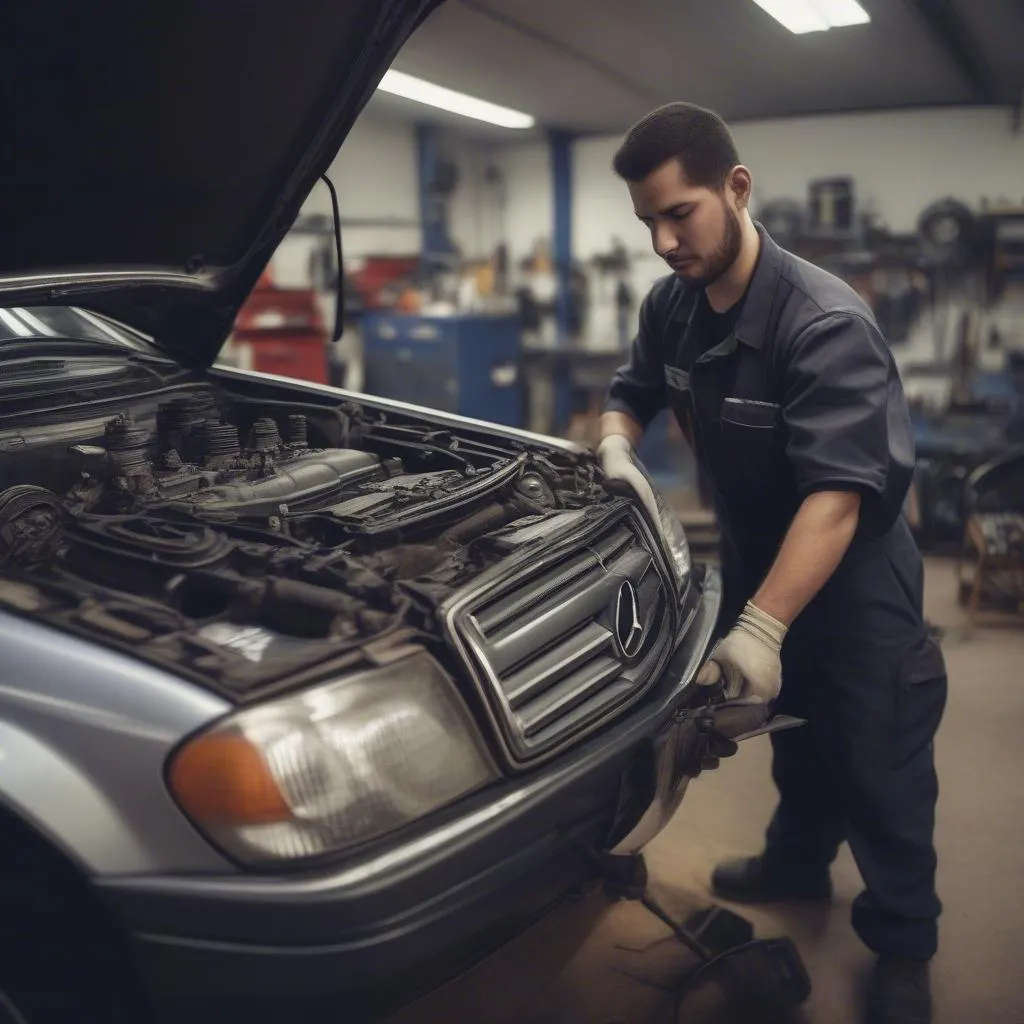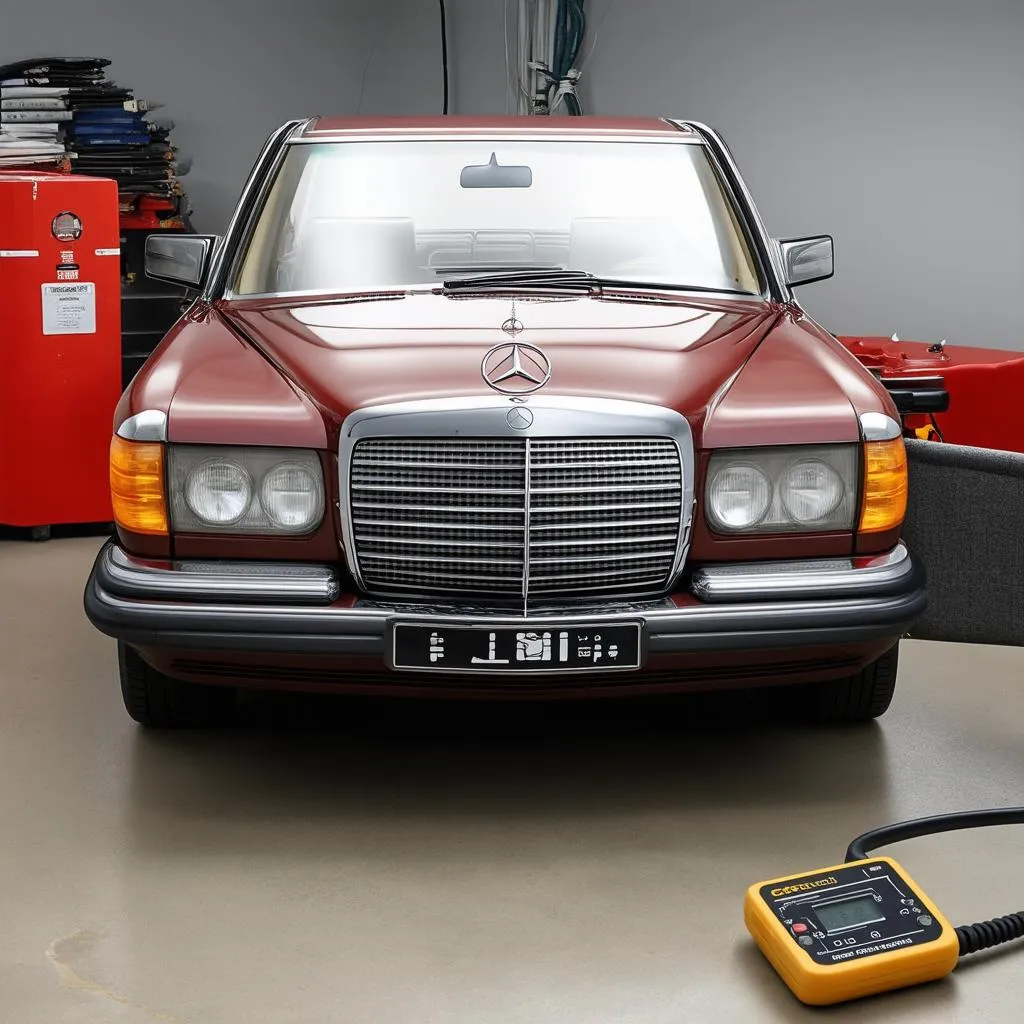Thinking about using Lucas Transmission Fix on your Mercedes? You’re not alone. Many Mercedes owners consider this a quick fix for transmission problems. But is it the right solution for your prized vehicle?
This article delves into the use of transmission additives like Lucas Transmission Fix on Mercedes transmissions. We’ll discuss the potential risks and benefits, helping you make an informed decision about your car’s health.
Understanding the Root of the Problem
Before reaching for a quick fix, it’s crucial to understand why your Mercedes transmission might be experiencing issues. Mercedes transmissions are complex systems, and a variety of factors can lead to problems:
- Low Transmission Fluid: This is a common culprit behind many transmission issues.
- Worn Out Transmission Fluid: Over time, transmission fluid degrades, losing its lubricating and cooling properties.
- Mechanical Wear and Tear: As vehicles age, components within the transmission can wear out, leading to shifting problems, slipping gears, or strange noises.
Recognizing the Symptoms
Identifying transmission problems early is key to preventing further damage. Here are some common symptoms to watch out for:
- Slipping Gears: Your car might unexpectedly shift out of gear while driving.
- Rough Shifting: You experience difficulty shifting gears or notice a jerky sensation when changing gears.
- Delayed Engagement: Your car hesitates or takes longer than usual to engage in gear after shifting.
- Transmission Noise: Unusual humming, whining, or clunking sounds coming from the transmission are red flags.
When a Quick Fix Might Not Be the Fix
While products like Lucas Transmission Fix promise to address transmission problems, it’s important to approach them with caution, especially for complex vehicles like Mercedes.
“Using stop-leak additives might mask a problem temporarily, but they won’t address the root cause,” says automotive expert [Random Expert Name], author of [Made-Up Book Title]. “In some cases, these additives can even worsen the issue or interfere with your Mercedes’s sophisticated transmission system.”
Addressing Transmission Issues the Right Way
If you’re experiencing transmission problems with your Mercedes, the best course of action is to seek professional help. A qualified mechanic specializing in Mercedes vehicles can accurately diagnose the issue using specialized tools like the ones from CARDIAGTECH. These tools can provide in-depth insights into the health of your transmission.
Depending on the diagnosis, the solution might involve:
- Fluid Change: Replacing old, degraded transmission fluid with the manufacturer-recommended type.
- Component Repair or Replacement: Addressing worn-out clutches, solenoids, or other internal parts.
- Transmission Rebuild or Replacement: This might be necessary for severe cases where the damage is extensive.
FAQs About Mercedes Transmission Problems
Q: Can I check my Mercedes transmission fluid myself?
A: While some cars have dipsticks for easy checking, many modern Mercedes models require a more involved process to check transmission fluid levels. It’s best to consult your owner’s manual or a qualified mechanic.
Q: How often should I service my Mercedes transmission?
A: Mercedes recommends servicing your transmission at regular intervals specified in your owner’s manual. This typically involves a fluid flush and filter replacement.
Q: Can I use any transmission fluid in my Mercedes?
A: It’s crucial to use the transmission fluid specifically recommended by Mercedes for your model. Using the incorrect fluid can lead to performance issues and even damage your transmission.
 Mercedes Transmission Fluid Check
Mercedes Transmission Fluid Check
 Mercedes Transmission Repair
Mercedes Transmission Repair
Conclusion
While Lucas Transmission Fix and similar products might seem tempting as a quick solution, it’s important to remember that your Mercedes transmission is a complex and sensitive system. Using such additives can sometimes do more harm than good. Always consult with a qualified mechanic, especially one experienced with Mercedes vehicles, to diagnose and address transmission problems properly. This ensures the longevity and optimal performance of your prized Mercedes.


